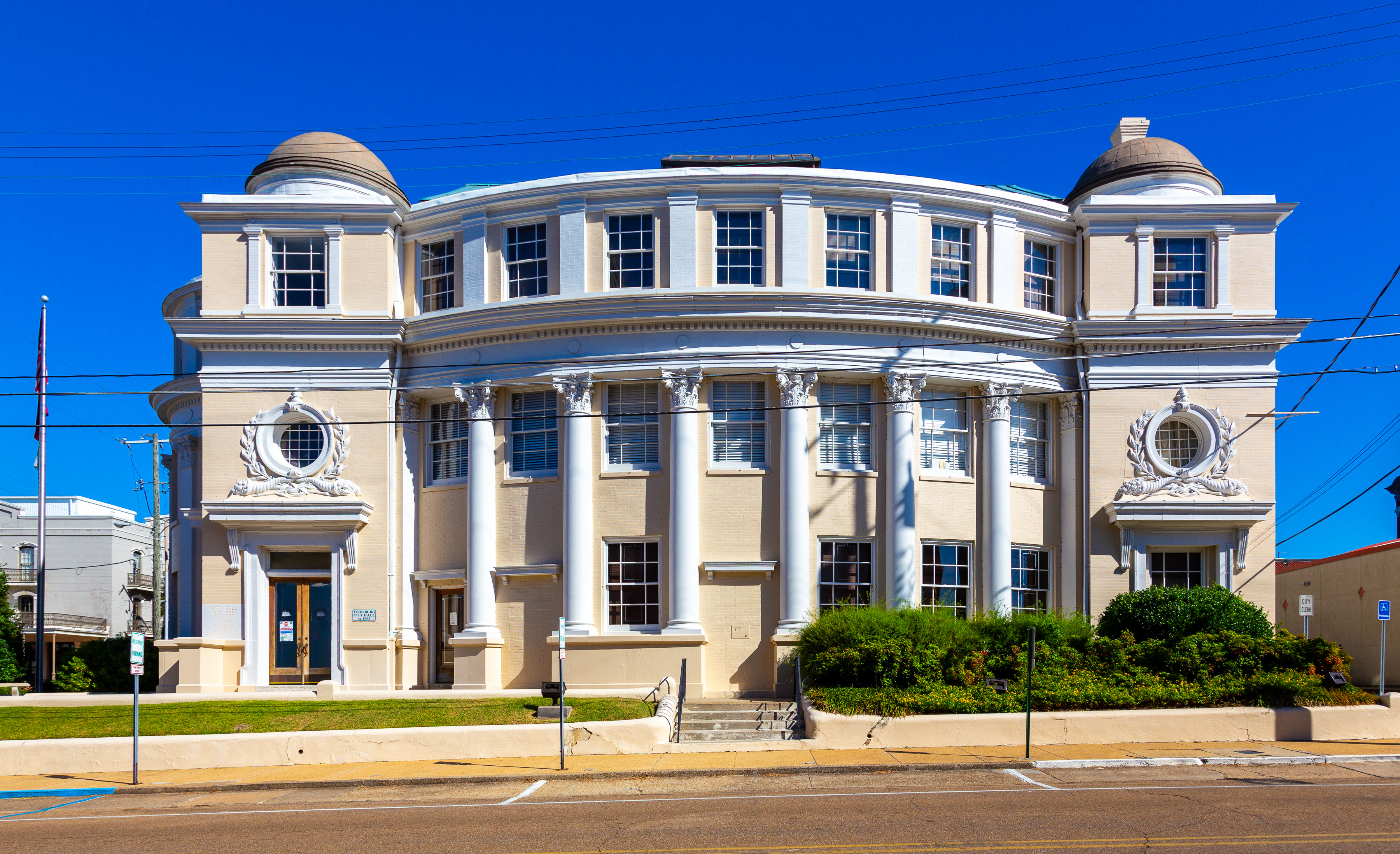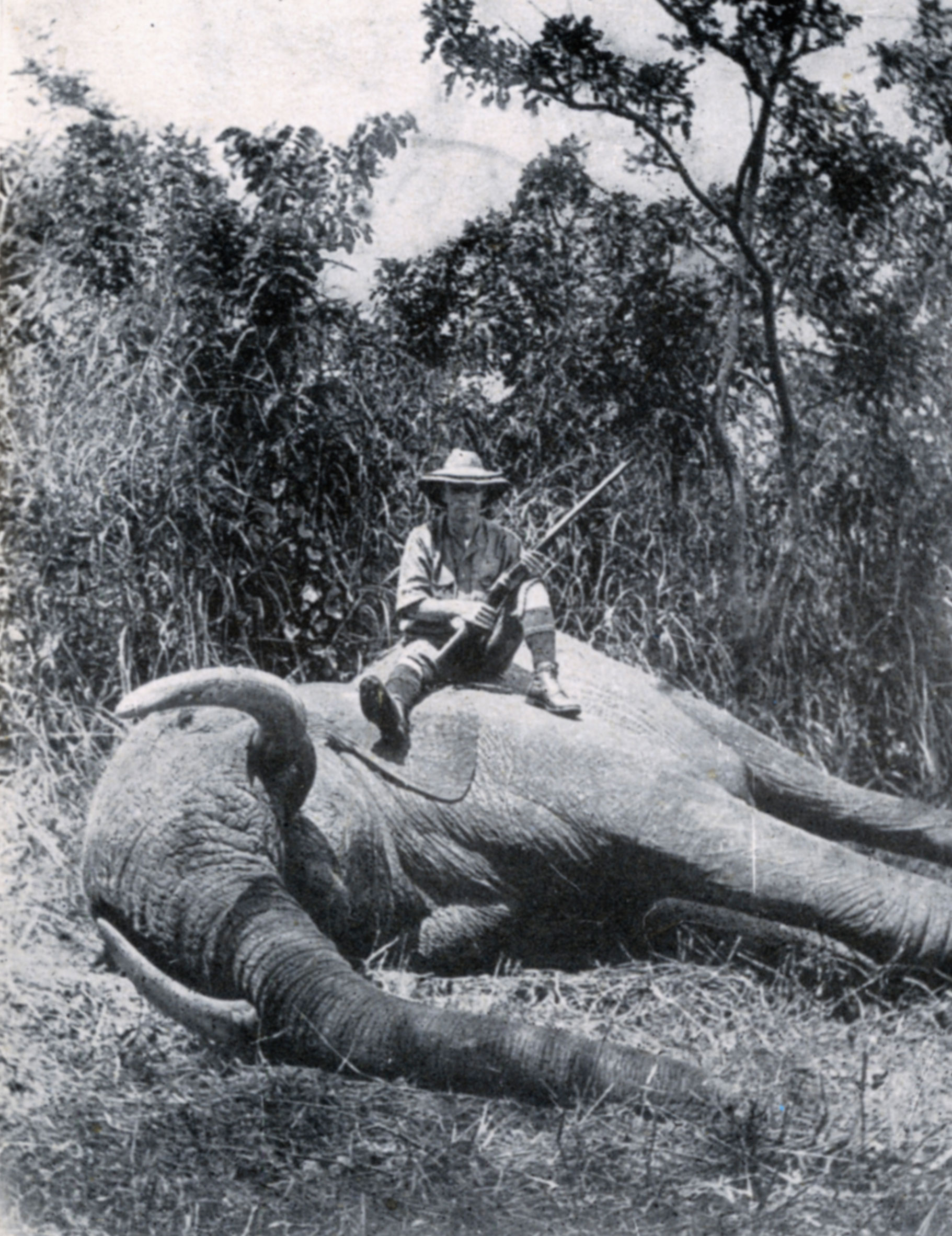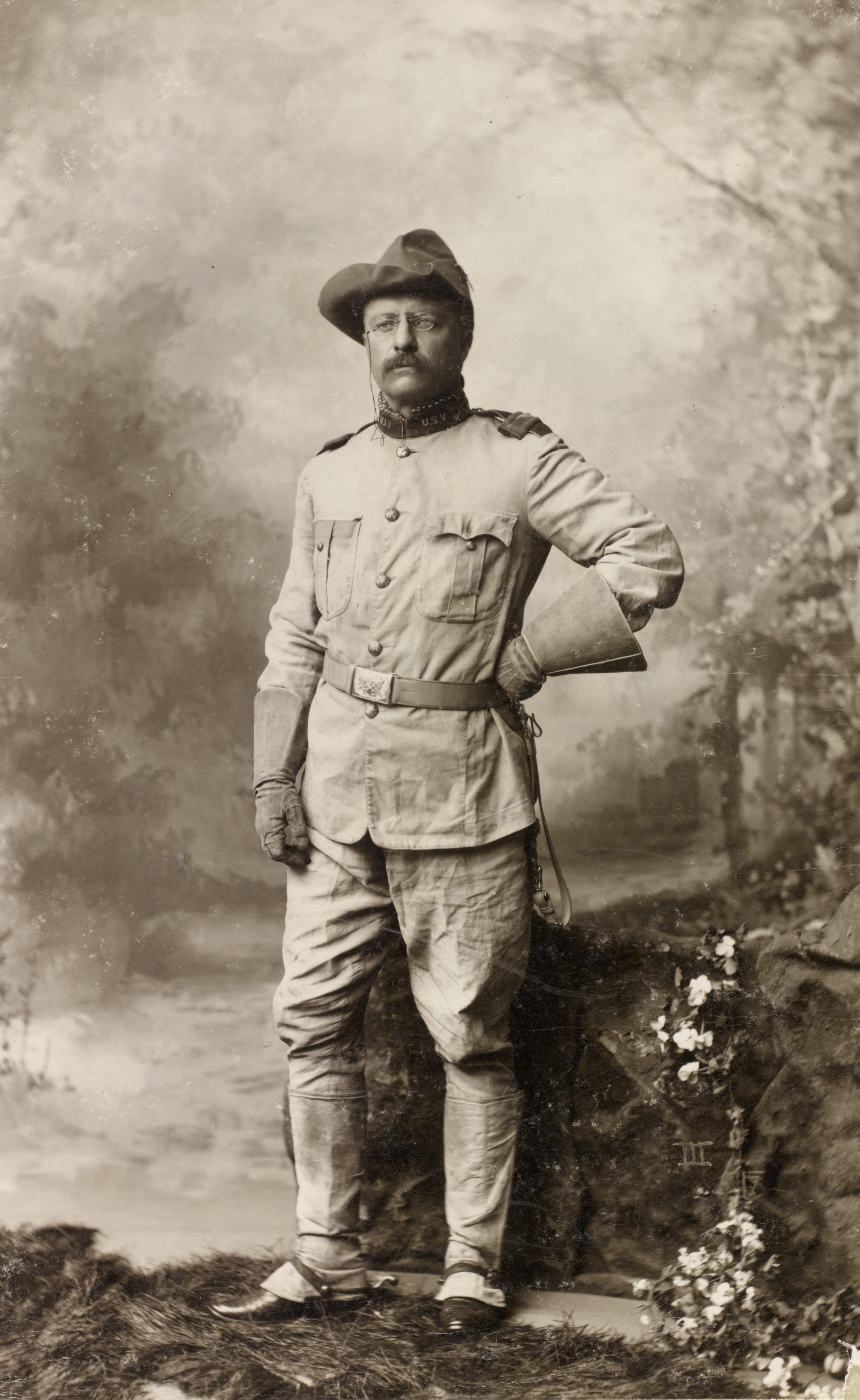|
Holt Collier
Holt Collier (c. 1848 – August 1, 1936) was a noted African-American bear hunter and sportsman. While leading a hunt for U.S. President Theodore Roosevelt, Teddy Roosevelt in November 1902, Collier unwittingly set the stage for the event that originated Roosevelt's nickname, "Teddy bear, Teddy Bear." Biography Collier was born circa 1848 as a slave in Mississippi and was the third generation to be enslaved by the Hinds family on Plum Ridge Plantation, built by General Thomas Hinds, who was a veteran of the Battle of New Orleans in 1815. At the request of General Andrew Jackson, Hinds had surveyed central Mississippi and chose the site for the state capital, Jackson, Mississippi, Jackson, before settling nearby in the area which is now Hinds County, Mississippi, Hinds County. Collier killed his first bear at the age of ten; thereafter, he was forced by his captors to use his skills to supply meat for the table of the Hinds family and the dozens of other African Americans th ... [...More Info...] [...Related Items...] OR: [Wikipedia] [Google] [Baidu] |
Mississippi
Mississippi () is a state in the Southeastern region of the United States, bordered to the north by Tennessee; to the east by Alabama; to the south by the Gulf of Mexico; to the southwest by Louisiana; and to the northwest by Arkansas. Mississippi's western boundary is largely defined by the Mississippi River. Mississippi is the 32nd largest and 35th-most populous of the 50 U.S. states and has the lowest per-capita income in the United States. Jackson is both the state's capital and largest city. Greater Jackson is the state's most populous metropolitan area, with a population of 591,978 in 2020. On December 10, 1817, Mississippi became the 20th state admitted to the Union. By 1860, Mississippi was the nation's top cotton-producing state and slaves accounted for 55% of the state population. Mississippi declared its secession from the Union on January 9, 1861, and was one of the seven original Confederate States, which constituted the largest slaveholding states in t ... [...More Info...] [...Related Items...] OR: [Wikipedia] [Google] [Baidu] |
Vicksburg, Mississippi
Vicksburg is a historic city in Warren County, Mississippi, United States. It is the county seat, and the population at the 2010 census was 23,856. Located on a high bluff on the east bank of the Mississippi River across from Louisiana, Vicksburg was built by French colonists in 1719, and the outpost withstood an attack from the native Natchez people. It was incorporated as Vicksburg in 1825 after Methodist missionary Newitt Vick. During the American Civil War, it was a key Confederate river-port, and its July 1863 surrender to Ulysses S. Grant, along with the concurrent Battle of Gettysburg, marked the turning-point of the war. The city is home to three large installations of the United States Army Corps of Engineers, which has often been involved in local flood control. Status Vicksburg is the only city in, and the county seat of, Warren County, Mississippi, United States. It is located northwest of New Orleans at the confluence of the Mississippi and Yazoo rivers, and ... [...More Info...] [...Related Items...] OR: [Wikipedia] [Google] [Baidu] |
1848 Births
1848 is historically famous for the wave of revolutions, a series of widespread struggles for more liberal governments, which broke out from Brazil to Hungary; although most failed in their immediate aims, they significantly altered the political and philosophical landscape and had major ramifications throughout the rest of the century. Ereignisblatt aus den revolutionären Märztagen 18.-19. März 1848 mit einer Barrikadenszene aus der Breiten Strasse, Berlin 01.jpg, Cheering revolutionaries in Berlin, on March 19, 1848, with the new flag of Germany Lar9 philippo 001z.jpg, French Revolution of 1848: Republican riots forced King Louis-Philippe to abdicate Zeitgenössige Lithografie der Nationalversammlung in der Paulskirche.jpg, German National Assembly's meeting in St. Paul's Church Pákozdi csata.jpg, Battle of Pákozd in the Hungarian Revolution of 1848 Events January–March * January 3 – Joseph Jenkins Roberts is sworn in, as the first president of the inde ... [...More Info...] [...Related Items...] OR: [Wikipedia] [Google] [Baidu] |
Douglas Brinkley
Douglas Brinkley (born December 14, 1960) is an American author, Katherine Tsanoff Brown Chair in Humanities, and professor of history at Rice University. Brinkley is the history commentator for CNN, Presidential Historian for the New York Historical Society, and a contributing editor to the magazine ''Vanity Fair''. He is a public spokesperson on conservation issues. He joined the faculty of Rice University as a professor of history in 2007. Early life Brinkley was born in Atlanta, Georgia in 1960, but after his father was transferred to the Toledo, Ohio headquarters of Owens-Illinois in 1969, did his remaining elementary and secondary schooling in Perrysburg, Ohio. His mother was a high school English teacher. In fourth grade Doug memorized the Presidents, their vice presidents, as well as the opposing presidential and vice presidential candidates. Education Brinkley was educated at Perrysburg High School, followed by Ohio State University, from which he earned a B.A. (1982), ... [...More Info...] [...Related Items...] OR: [Wikipedia] [Google] [Baidu] |
List Of Famous Big Game Hunters
This list of famous big-game hunters includes sportsmen who gained fame largely or solely because of their big-game hunting exploits. The members of this list either hunted big game for sport, to advance the science of their day, or as professional hunters. It includes brief biographical details focusing on the type of game hunted, methods employed, and weapons used by those featured. Africa Bunny Allen Frank Maurice "Bunny" Allen (1906–2002) was an English-born professional safari guide in Kenya. Born in Buckinghamshire, as a young boy Allen learnt to poach game, gaining the nickname "Bunny" for his skill at snaring rabbits. In 1927 Allen followed his older brothers to Kenya. Managing a farm, Allen would take guests of the owner on shoots, bringing him to the attention of Bror von Blixen-Finecke and Denys Finch Hatton. Allen soon became one of Finch Hatton’s guns on shoots, including the Prince of Wales’ 1928 safari. Rising to captain in the 6th King's African Rifles ... [...More Info...] [...Related Items...] OR: [Wikipedia] [Google] [Baidu] |
Holt Collier National Wildlife Refuge
The Holt Collier National Wildlife Refuge is one of seven refuges in the Theodore Roosevelt National Wildlife Refuge Complex and is a National Wildlife Refuge located on Bogue Phalia near Darlove, Mississippi. The Refuge was named after Holt Collier (1846–1936), a Confederate veteran, cowboy, and tracker; and was created in order to provide a habitat and resources for over 250 songbirds.Wildlife and Habitat Management Accessed July 10, 2007.''<--Broken link, November 2015.'' Moreover, approximately has been set aside for . History Holt Collier National Wildlife Refuge is the only refuge to be named in honor of an |
The Washington Post
''The Washington Post'' (also known as the ''Post'' and, informally, ''WaPo'') is an American daily newspaper published in Washington, D.C. It is the most widely circulated newspaper within the Washington metropolitan area and has a large national audience. Daily broadsheet editions are printed for D.C., Maryland, and Virginia. The ''Post'' was founded in 1877. In its early years, it went through several owners and struggled both financially and editorially. Financier Eugene Meyer purchased it out of bankruptcy in 1933 and revived its health and reputation, work continued by his successors Katharine and Phil Graham (Meyer's daughter and son-in-law), who bought out several rival publications. The ''Post'' 1971 printing of the Pentagon Papers helped spur opposition to the Vietnam War. Subsequently, in the best-known episode in the newspaper's history, reporters Bob Woodward and Carl Bernstein led the American press's investigation into what became known as the Watergate scandal ... [...More Info...] [...Related Items...] OR: [Wikipedia] [Google] [Baidu] |
Spanish–American War
, partof = the Philippine Revolution, the decolonization of the Americas, and the Cuban War of Independence , image = Collage infobox for Spanish-American War.jpg , image_size = 300px , caption = (clockwise from top left) , date = April 21 – August 13, 1898() , place = , casus = , result = American victory *Treaty of Paris (1898), Treaty of Paris of 1898 *Founding of the First Philippine Republic and beginning of the Philippine–American War * German–Spanish Treaty (1899), Spain sells to Germany the last colonies in the Pacific in 1899 and end of the Spanish Empire in Spanish colonization of the Americas, America and Asia. , territory = Spain relinquishes sovereignty over Cuba; cedes Puerto Rico, Guam and the Philippine Islands to the United States. $20 million paid to Spain by the United States for infrastructure owned by Spain. , combatant1 = United State ... [...More Info...] [...Related Items...] OR: [Wikipedia] [Google] [Baidu] |
Rough Riders
The Rough Riders was a nickname given to the 1st United States Volunteer Cavalry, one of three such regiments raised in 1898 for the Spanish–American War and the only one to see combat. The United States Army was small, understaffed, and disorganized in comparison to its status during the American Civil War roughly thirty years prior. Following the sinking of , President William McKinley needed to muster a strong ground force swiftly, which he did by calling for 125,000 volunteers to assist in the war. The U.S. had gone to war in opposition to Spanish colonial policies in Cuba, which was then torn by a rebellion. The regiment was also nicknamed "Wood's Weary Walkers" for its first commander, Colonel Leonard Wood. This reflected their dissatisfaction that despite being cavalry, they ended up fighting in Cuba as infantry, since their horses were not sent there with them. Wood's second in command was former Assistant Secretary of the Navy Theodore Roosevelt, a strong advocate for ... [...More Info...] [...Related Items...] OR: [Wikipedia] [Google] [Baidu] |
Louisiana
Louisiana , group=pronunciation (French: ''La Louisiane'') is a state in the Deep South and South Central regions of the United States. It is the 20th-smallest by area and the 25th most populous of the 50 U.S. states. Louisiana is bordered by the state of Texas to the west, Arkansas to the north, Mississippi to the east, and the Gulf of Mexico to the south. A large part of its eastern boundary is demarcated by the Mississippi River. Louisiana is the only U.S. state with political subdivisions termed parishes, which are equivalent to counties, making it one of only two U.S. states not subdivided into counties (the other being Alaska and its boroughs). The state's capital is Baton Rouge, and its largest city is New Orleans, with a population of roughly 383,000 people. Some Louisiana urban environments have a multicultural, multilingual heritage, being so strongly influenced by a mixture of 18th century Louisiana French, Dominican Creole, Spanish, French Canadian, Acadi ... [...More Info...] [...Related Items...] OR: [Wikipedia] [Google] [Baidu] |
Avery Island, Louisiana
Avery Island (historically french: Île Petite Anse) is a salt dome best known as the source of Tabasco sauce. Located in Iberia Parish, Louisiana, United States, it is approximately inland from Vermilion Bay, which in turn opens onto the Gulf of Mexico. A small human population lives on the island. The island is listed on the National Register of Historic Places. History The island was named after the Avery family, who settled there in the 1860s, but long before that, Native Americans had found that Avery Island's verdant flora covered a precious natural resource—a massive salt dome. There, Native Americans boiled the Island's briny spring water to extract salt, which they traded to other tribes as far away as central Texas, Arkansas, and Ohio. According to records maintained prior to 1999 in the Southern Historical Collection at the University of North Carolina at Chapel Hill, Petite Anse Island, renamed Avery Island in the late 19th century, was purchased by John Craig ... [...More Info...] [...Related Items...] OR: [Wikipedia] [Google] [Baidu] |








